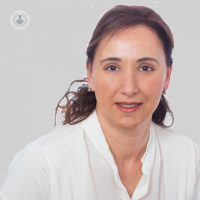Cómo sé si mi hijo sufre depresión
Written by:Melancholy or sadness are feelings that all people will experience at some point throughout their lives. When the mood of a person suffers very strong and prolonged feelings in the time of sadness or related that impede to develop daily life with normality, this sadness turns into depression.
There are two types of depression, the so-called unipolar depression and bipolar depression. Usually, both are considered as mood disorders or affective disorders. Among the experts in psychiatry , it is known as humor to a mood that generally oscillates throughout the day and also in function of the evolutionary stages. Therefore, depression in childhood is not the same as in youth, or in adulthood or old age.

Causes of Depression
Depression may be due to exogenous or endogenous factors, although they are usually associated. We can consider exogenous factors those that are related to circumstances of the environment, such as unemployment, economic crisis, very traumatic events ... Endogenous factors are those that relate to certain moments that the individual goes through and his way of dealing with them, that its turn will be associated to its personal history, characteristics of personality, family and situations previously lived.
There are also depressions characteristic of certain moments in life and life cycle of each individual, such as postpartum depression.
At the same time, it should be noted that depressive episodes tend to be more common in adolescents than in boys, and in turn there has been a greater tendency among girls regarding boys. The increase in cases of depression after reaching adolescence is also related to a greater abuse of substances such as tobacco, alcohol or other drugs.
Symptoms of depression
The characteristic symptoms of depression that can be observed in children and / or adolescents are:
- Affective symptoms
o Sad or easily irritable mood
o Loss of interest o Irritability, dissatisfaction and widespread pessimism
o Tendency to isolation, anxiety and distress
o Loss of ability to enjoy
- Physical symptoms
or Enlientocimiento and mutismo on occasions
o Psychomotor restlessness o Intense fatigability
Decreased or increased appetite
or Sleep disturbances
- Cognitive symptoms
o Decreased ability to concentrate, with constant forgetfulness and forgetfulness
or indecision
o Cognitive distortions, such as the verbalization of pessimistic thoughts
o Low self-esteem, feeling of worthlessness, emptiness and loneliness o Ideas of death
Evolution of depression
Most of the time, depressive episodes are usually recovered , achieving a partial remission of symptoms and developing a chronic depression the rest.
In the differential diagnosis, it is possible to present normal sadness episodes , which are those in which the feeling of sadness is proportional to the triggering factor, such as separation or death of a loved one.
Also note the episodes of melancholy , which tend to be more serious, and where the medication is of fundamental importance to get a good prognosis. To be diagnosed, at least five of the symptoms that characterize depression should be present for most of the day and in most activities.
Treatment of depression
In general, depression usually refers with psychological psychotherapeutic aid. However, in cases of greater intensity, some psychoactive drugs, such as antidepressants or anxiolytics, are added to alleviate some of the suffering and some symptoms.
In the case of severe or prolonged depression in time with melancholy, both treatments (antidepressants and / or anxiolytics) are usually combined with psychological psychotherapy.
In some types of depression, such as bipolar depression or in some postpartum depressions, it is necessary to add to the above some other psychotropic drug such as neuroleptics.


